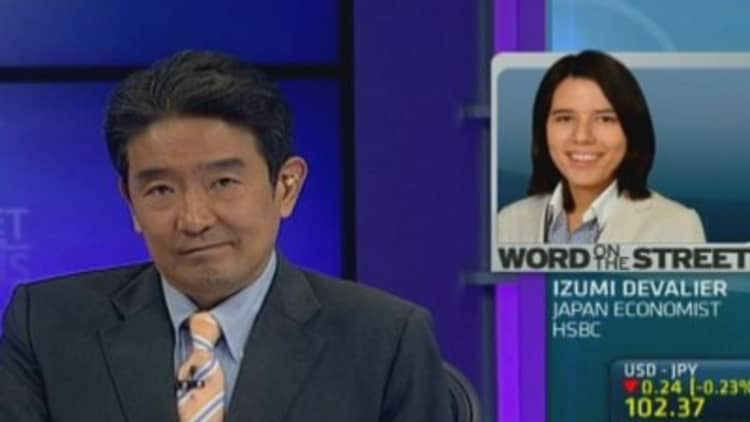
The Bank of Japan has cut its target for real gross domestic product (GDP) growth to +1.1 percent for fiscal year ending March 2015, down from its January projection of 1.4 percent.
In its semi-annual report released Wednesday, the central bank however kept its real GDP forecast for fiscal year ending March 2016 unchanged at +1.5 percent.
It also kept its core consumer price index (CPI) projections intact at +1.3 percent for the fiscal year 2014/2015 and +1.9 percent for 2015/2016, respectively, excluding the effects of the sales tax hike and came into effect this month.
While the BOJ said risks to its economic outlook are balanced, uncertainty over its exports sector remains high.
Earlier on Wednesday, the central bank kept monetary policy steady by a unanimous vote, maintaining its pledge to increase its monetary base by 60-70 trillion yen a year.
The BOJ has stood pat since unleashing its massive monetary stimulus last April, pledging to double base money via aggressive purchases in order to achieve its 2 percent inflation target in two years.
The move has sparked a massive rally in the country's stock markets and a drop in the yen, although the exuberance has since been tempered by the government's decision to raise consumption tax to 8 percent from 5 percent.
The sales tax hike is expected to hurt Japan's economy, and analysts expect the BOJ to jump in at some point with further stimulus measures.
"I do think they will have to expand stimulus program, I think there is no choice. My personal feeling is later in the year. We can debate whether it's going to be September or October, but I do think that they have to do it," said Viktor Shvets, head of Asia strategy research at Macquarie. "
"You either double down or you accept that perhaps your policy has not worked. You just cant stay in the middle, like what they have been trying to," he added.

